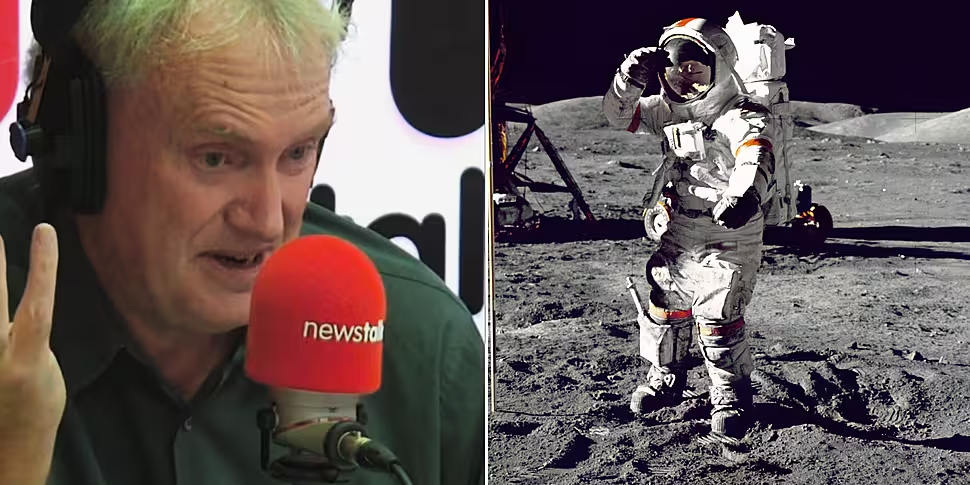Scientists think that dust from the moon's surface could potentially be used to reverse the affects of climate change.
It is believed that this dust could shield Earth from some of the extreme temperatures as a result of climate change.
Professor Luke O'Neill said that, while it seems like "the most ridiculous thing", it really could have a "cooling effect" on our planet.
Speaking on his podcast Show Me The Science, Prof O'Neill explained how such an plan could be executed.
"What if we put stuff on the moon? So we sent up rockets to the moon."
"And what if we got those rockets to build those machines on the moon to carve up the moon dust on the surface of the moon and fling it into space?"
How will it work?
The proposal has already been modelled digitally and scientists are confident about its efficacy.
NASA would first need to build a base on the moon so that mining devices can be put there to "dig into the moon's surface, fractionate the dust into dust particles and catapult it, is the word they're using, up into space".
"What would happen then", Prof O'Neill says, "this dust would go into space, it'll move towards the earth ... that will then prevent the full intensity of the sunlight shining on the earth".
"Even if you decrease the intensity of sunlight by a small amount coming towards the earth, that could help us in terms of global warming."
Global warming
The greenhouse effect means that heat gets trapped in the earth's atmosphere, but that heat comes from the sun.
"If you can turn the sun down a bit, it's kind of like turning the dial down slightly ... I think the numbers are like 1.8% they're proposing that this could achieve", Prof O'Neill said.
"It seems unlikely that this would do that, but still a very reputable journal has published this."
Catapulting the dust into space would have to be a constant process if the plan was to work long-term.
"They've calculated you need to shoot up into space ten billion kilograms every so often", he said.
"A lot of dust has to go up, but still they say this is feasible and there's loads of dust up there to project into space."









